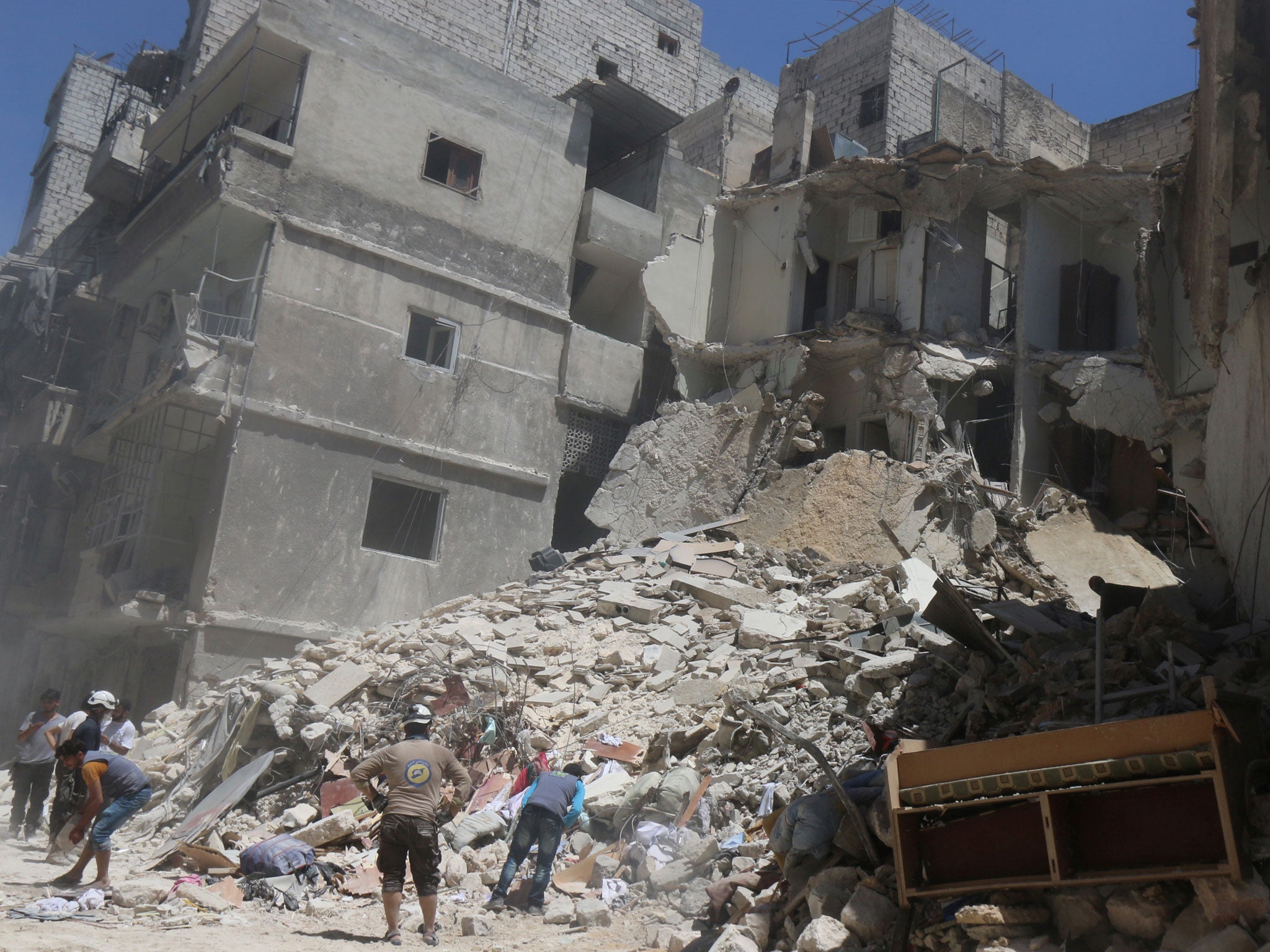Syria civil war: 'Exit corridors to open' to allow residents to leave Aleppo
However, opposition forces and civilians appear sceptical of the offer from the Syrian government and Russia to leave freely

Pro-government forces have tightened their grip around the besieged Syrian city of Aleppo – where the local governor has said safe corridors have been opened for civilians to escape rebel-held areas.
A quarter of a million civilians still live in Aleppo’s opposition-controlled eastern neighbourhoods, effectively under siege since the army and allied militia cut off the last road into rebel districts in early July.
State television quoted the governor of Aleppo as saying three humanitarian corridors would be established and President Bashar al-Assad offered an amnesty for rebels who surrender within three months.
Russia said a fourth corridor would be set up in the north of the city for surrendering rebels, near the Castello road which the army recently seized.
Pictures of what appeared to be a leaflet dropped on Thursday showed a map of Aleppo, entitled “Safe exit points from Aleppo city”, with four crossing points out of the rebel areas marked as humanitarian corridors.
The Syrian army said on Wednesday it had dropped thousands of leaflets over opposition-held Aleppo districts, asking residents to cooperate with the military and calling on fighters to surrender.
Rebels and residents of Aleppo said they were deeply skeptical of the offer, and there was no immediate sign of people massing to leave the besieged parts of the city.

Rights groups said opening safe passages to civilians trapped in eastern Aleppo city will not avert a catastrophe and does not give Syrian and Russian forces carte blanche to further blockade the opposition-controlled territory.
In a statement on Thursday, the London-based Amnesty International said providing safe routes for those civilians wishing to leave is “no substitute for allowing impartial humanitarian relief for civilians who remain in opposition-held areas”, many of whom will be skeptical about government and Russian promises.
“Providing safe routes for those civilians who wish to flee Aleppo city will not avert a humanitarian catastrophe,” said Philip Luther, director of the Middle East and North Africa programme for Amnesty.
“The fact that you provide this option doesn't mean that the people who stay behind are legitimate military targets,” said Nadim Houry, the deputy Middle East director at Human Rights Watch, in comments to the Associated Press.
Russian Defence Minister Sergei Shoigu said: “On behalf of the President of the Russian Federation, today, [we will] start a large-scale humanitarian operation together with the Syrian government to help civilians in Aleppo.”
The UN envoy for Syria, Staffan de Mistura, said he wants to see how the United Nations could coordinate with Russia on its plan to help civilians and opposition fighters who lay down their weapons outside Aleppo, which he called “de facto” besieged.
“In Aleppo, the situation is extremely serious, no doubt,” Mr de Mistura said. “There is probably – we heard – two to three weeks of supplies, and in view of the bombing of the warehouses, medical facilities, bakeries, and the need of treating wounded people when in fact medical facilities are being hit, the humanitarian situation is getting more and more concerning.”
Aleppo, Syria's biggest city before the outbreak of the conflict five years ago, has been divided between government forces and rebels since the summer of 2012. Its recapture would mark Mr Assad's biggest victory so far in the civil war.
The army, backed by allied militia forces and air support from Syrian and Russian jets, has taken more ground on the northern edge of the city, around the Castello road which leads out towards Turkey.
State television said the army had advanced in the Bani Zeid district, on the southern side of the Castello road. The Syrian Observatory for Human Rights said the pro-government forces had taken full control of the district.
A rebel source confirmed that the army had made advances. He said Kurdish forces from the nearby Sheikh Maqsoud district had also taken advantage of the fighting to advance into a housing complex in Bani Zeid.
“There has been a [rebel] withdrawal, but no one has surrendered,” Zakaria Malahifji of the Aleppo-based rebel group Fastaqim group told Reuters.
Reuters and Associated Press
Join our commenting forum
Join thought-provoking conversations, follow other Independent readers and see their replies
Comments
Bookmark popover
Removed from bookmarks